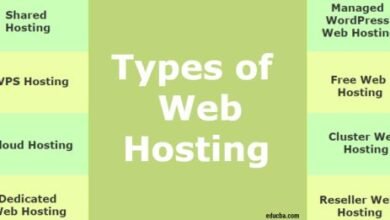
Juggling multiple websites can feel like managing a bustling metropolis. Each site has its own needs, content, and audience. But just like a city wouldn’t function without a central infrastructure, your websites rely on a solid web hosting plan to thrive online.
This guide delves into the world of multiple-domain hosting, helping you navigate the options and choose the perfect plan to keep your web empire running smoothly.
Understanding Multiple-Domain Hosting
Imagine a physical server as a high-rise apartment building. Shared hosting plans, the most common and affordable option, are like renting individual apartments within that building. Multiple websites share the server’s resources, making it cost-effective but potentially limiting performance.
Multiple-domain hosting, however, allows you to host multiple websites on the same server account, similar to renting out multiple apartments within the building with a single lease. This is ideal for managing several websites efficiently, offering features like:
- Centralized Management: Manage all your websites’ files, databases, and settings from a single control panel.
- Cost-effectiveness: Hosting multiple websites under one plan is generally cheaper than purchasing individual accounts.
- Scalability: Upgrade your plan as your website needs grow, adding more storage and bandwidth when needed.
Key Factors to Consider When Choosing a Plan
Now that you understand the concept of multiple-domain hosting, let’s explore the key factors to consider when selecting a plan:
1. Number of Domains Supported:
- Limited Domains: Some plans restrict the number of domains you can host. Choose a plan that accommodates your current needs and allows for future growth.
- Unlimited Domains: While tempting, “unlimited” often comes with caveats. Carefully review the terms of service to understand potential limitations.
2. Storage Space:
- Low Storage: Ideal for simple websites with minimal content.
- High Storage: If you have websites with images, videos, or complex databases, opt for plans with ample storage space.
3. Bandwidth:
- Bandwidth refers to the amount of data transferred between your website and visitors.
- Low Bandwidth: Suitable for websites with low traffic. Upgrading might be necessary if your sites experience traffic spikes.
- Unlimited Bandwidth: Similar to unlimited domains, “unlimited” bandwidth plans might have hidden throttling practices. Choose plans with clear bandwidth allowances.
4. Website Type:
Simple Websites: Basic shared hosting may suffice for static websites with minimal interactivity.
Content Management Systems (CMS): Platforms like WordPress or Drupal require more robust hosting. Consider managed WordPress hosting for optimized performance and security.
E-commerce Sites: Online stores with product catalogs and payment gateways demand robust hosting with high uptime and security features.
5. Uptime Guarantee:
- Uptime refers to the percentage of time your website is accessible to visitors.
- Look for a provider offering a high uptime guarantee (ideally 99.9% or higher) to ensure minimal downtime.
6. Security Features:
- Security breaches can damage your reputation and cause you to lose customers.
- Choose a provider offering features like SSL certificates, malware scanning, and automatic backups to protect your websites.
7. Customer Support:
- Reliable customer support is crucial for resolving technical issues quickly.
- Look for providers with 24/7 support via phone, chat, or email.
8. Scalability:
- Consider how your website’s needs might evolve.
- Choose a plan that allows for easy upgrades to accommodate future growth in traffic or data storage.
9. Price:
- While cost is a factor, don’t prioritize the cheapest option at the expense of quality.
- Find a balance between affordability and features that meet your website’s requirements.
Popular Types of Multiple-Domain Hosting
Now that you understand the core factors, let’s explore the different types of multiple-domain hosting available:
Shared Hosting: Affordable and user-friendly, shared hosting’s is a good starting point for beginners managing small websites. However, performance and security might be limited.
Virtual private server (VPS) hosting offers increased control and dedicated resources compared to shared hosting. Ideal for websites with moderate traffic or requiring more customization.
Cloud hosting provides on-demand scalability and flexibility. Cloud resources automatically scale based on your website’s traffic needs. Ideal for e-commerce sites or websites with fluctuating traffic.
Dedicated hosting is the most expensive option but offers the highest level of control, security, and performance. Suitable for mission-critical websites with high traffic volumes.
Choosing the Right Hosting Partner
Once you’ve considered the factors and types of hosting’s, it’s time to research hosting providers. Here are some tips:





